Selecting the right mechanics’ tools and equipment is a pivotal decision for both seasoned professionals and enthusiastic DIYers alike. These tools are the lifeblood of the automotive world, facilitating repairs, maintenance, and customization with precision and efficiency.
However, with the vast array of options available, navigating the tool and equipment landscape can be daunting. This article guides you with essential tips for choosing the right mechanics’ tools and equipment tailored to your specific needs, whether you’re working in a professional garage or tinkering in your home workshop.
Define Your Purpose
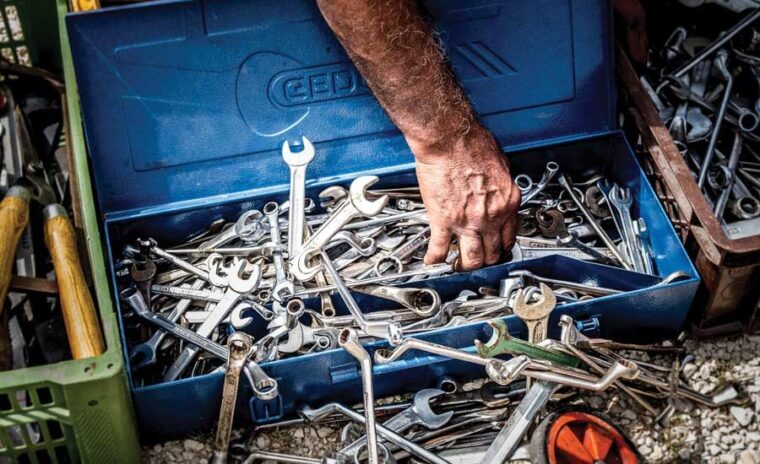
Before embarking on your tool and equipment shopping journey, defining your purpose is imperative. Ask yourself what tasks you’ll be performing most frequently. Are you specializing in engine work, body repair, or electrical diagnostics? Understanding your primary objectives will guide your tool selection and prevent unnecessary purchases.
Quality Over Quantity
Quality always reigns supreme when it comes to mechanics’ tools and equipment. Invest in well-established brands known for their durability and reliability. While acquiring a vast assortment of tools may be tempting, it’s wiser to start with a few high-quality essentials and gradually expand your collection as needed.
Ergonomics Matter
Mechanical work often demands hours of precision and repetitive motions. Therefore, ergonomics should be a top consideration. Choose tools with comfortable grips, balanced weight distribution, and features designed to reduce strain on your hands and wrists. Ergonomic tools enhance your comfort and productivity.
Consider Your Workspace
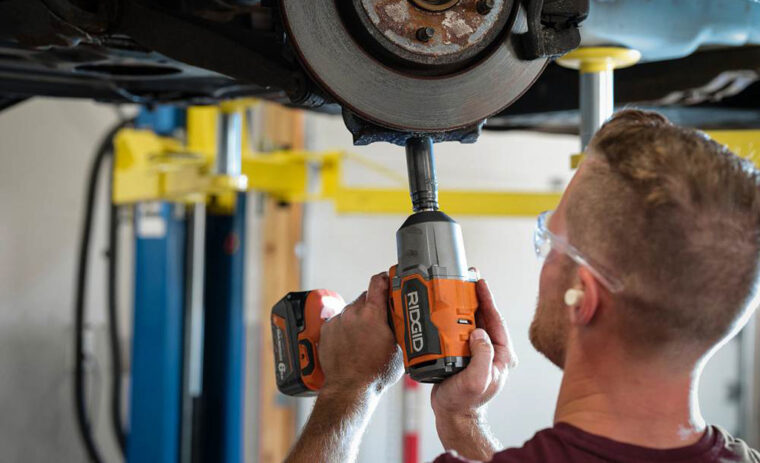
The size and layout of your workspace play a pivotal role in tool selection. Ensure your tools and equipment fit comfortably within your workspace while leaving adequate room for maneuverability. Compact and portable tools are ideal for smaller areas, while larger facilities can accommodate bulkier equipment.
Versatility is Key
Opt for tools and equipment with multiple uses whenever possible. Versatile tools not only save space but also provide more value for your investment. For instance, a multifunctional socket wrench set can replace numerous individual wrenches.
Research and Reviews
Harness the power of the internet by researching tools and equipment thoroughly before making a purchase. Read reviews and watch video demonstrations to gain insights into real-world performance. Don’t hesitate to ask for recommendations from experienced mechanics or enthusiasts in online communities.
Consider Power Sources
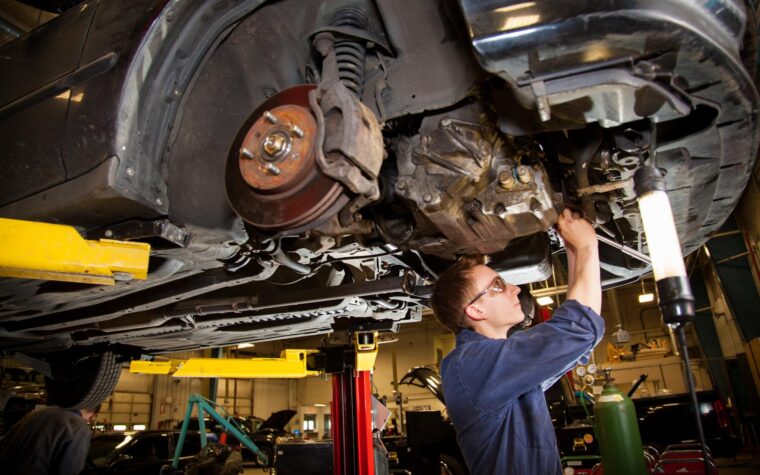
Mechanics’ tools and equipment can be powered by electricity, compressed air, or manually operated. Depending on your preferences and available resources, select tools that align with your chosen power source. Consider investing in cordless electric tools for portability or air-powered tools for high-torque applications.
Budget Wisely
Establishing a budget is crucial, as mechanics’ tools and equipment can range from budget-friendly to high-end. Set a reasonable budget based on your needs and prioritize essential tools first. Avoid impulsive purchases and focus on acquiring quality tools that will last. Don’t forget to search online for good tool options, too, as this is often a way to pick up good deals. Whether you need to buy an impact wrench, electrical meter, diagnostic scanner, or quality pickle fork tool, you’ll find products online, usually at affordable prices.
Safety First
Never compromise on safety when choosing mechanics’ tools and equipment. Ensure they meet industry safety standards and feature built-in safety mechanisms. Safety should always be your top priority when working on vehicles.
Test Before Committing
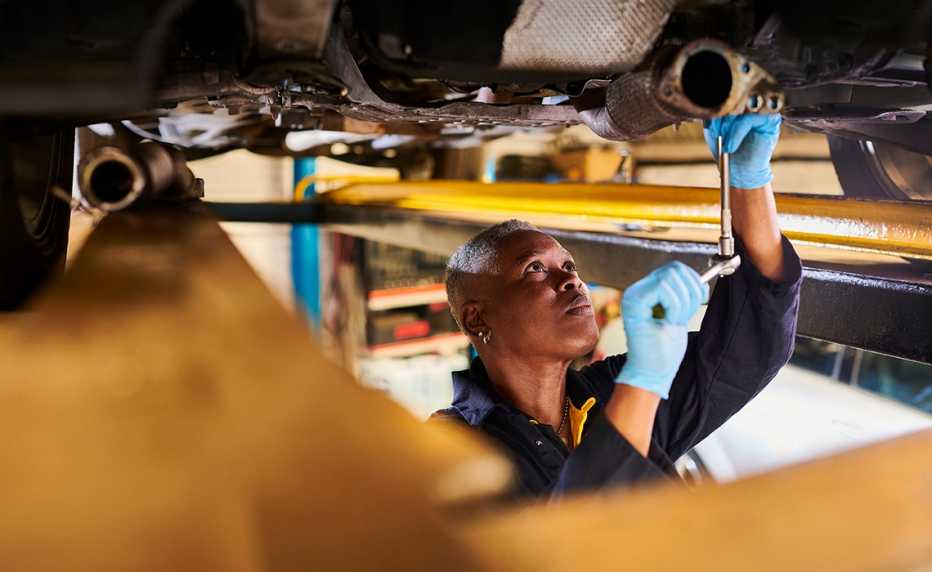
Whenever possible, test tools and equipment before making a final purchase decision. Visit local stores or dealerships to get a feel for the tools’ ergonomics and functionality. Hands-on experience can be invaluable in determining the right fit for your needs.
Consider Long-Term Needs
While immediate needs are essential, think about your long-term aspirations. Are you planning to expand your skill set or tackle more complex projects in the future? Choose tools and equipment that can evolve with your expertise, ensuring you won’t outgrow them too quickly.
Evaluate Warranty and Support
Review the warranty and customer support options offered by tool manufacturers. A solid warranty provides peace of mind and demonstrates the manufacturer’s confidence in the quality of their product. Adequate customer support can be invaluable in case you encounter issues or have questions about your tools.
Stay Informed About Technological Advances
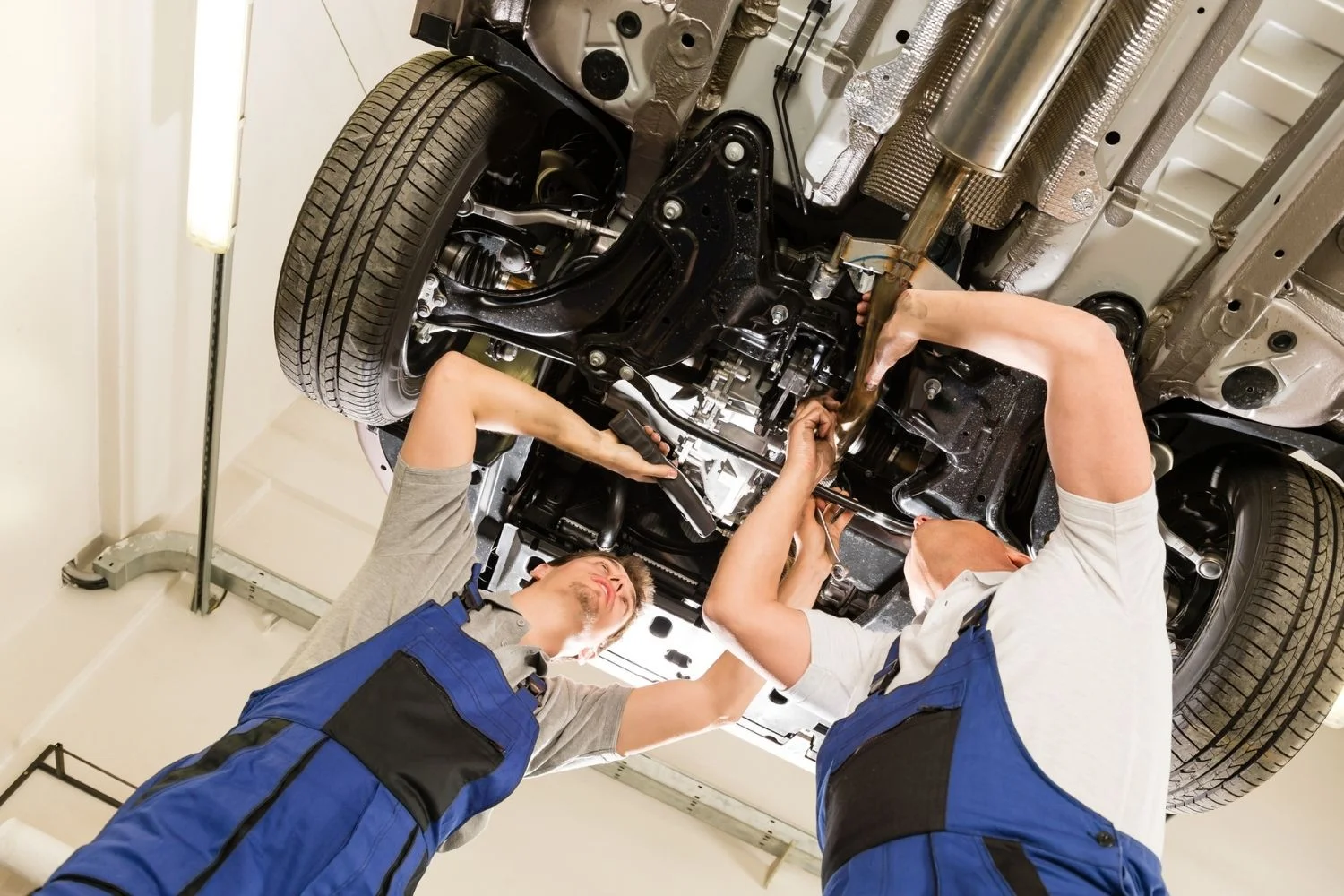
Mechanics’ tools and equipment are continually evolving with technological advancements. Stay informed about the latest innovations that can enhance your efficiency and accuracy. Tools with digital displays, wireless connectivity, and smart features can streamline your work processes.
Tool Storage
Proper tool storage is essential to maintain organization and protect your investment. Invest in tool chests, cabinets, or pegboard systems to keep tools tidy and accessible. Organized tools save time and prevent damage, ensuring they remain in good working condition.
Maintenance and Care
Regular maintenance and care are vital to extend the lifespan of your tools. Keep them clean, lubricated, and inspect for wear. Well-maintained tools perform reliably, preventing costly replacements. Establish a routine for cleaning, sharpening, and oiling your tools to ensure their longevity.
Local Regulations

Depending on your location and work type, various regulations may apply to mechanics’ tools and equipment. Be aware of local and industry-specific standards, ensuring compliance with safety and environmental regulations. Stay informed about any licensing or certification requirements that may impact your work.
Environmental Considerations
Mechanics should adopt environmentally responsible practices. Dispose of hazardous materials properly, recycle old tools, and reduce waste where possible. Minimizing environmental impact is essential. Use eco-friendly cleaning products and follow environmentally conscious disposal practices to contribute to a greener automotive industry.
Continuing Education
Continued learning is crucial in the ever-evolving automotive field. Stay updated with the latest technologies and repair techniques by attending workshops, courses, or industry conferences. Ongoing education enhances skills and knowledge, making you a more capable and adaptable mechanic. Invest in your professional development for a successful career.
Selecting the right mechanics’ tools and equipment is pivotal in ensuring successful automotive repair and maintenance endeavors. By following the strategies listed above, you can make informed decisions that align with your specific requirements. Remember that your tool collection is an investment in your capabilities, and choosing wisely will pay dividends in efficiency, safety, and satisfaction. Whether you’re a professional mechanic or an avid DIY enthusiast, these tips will guide you toward assembling the perfect toolkit for your automotive adventures.
